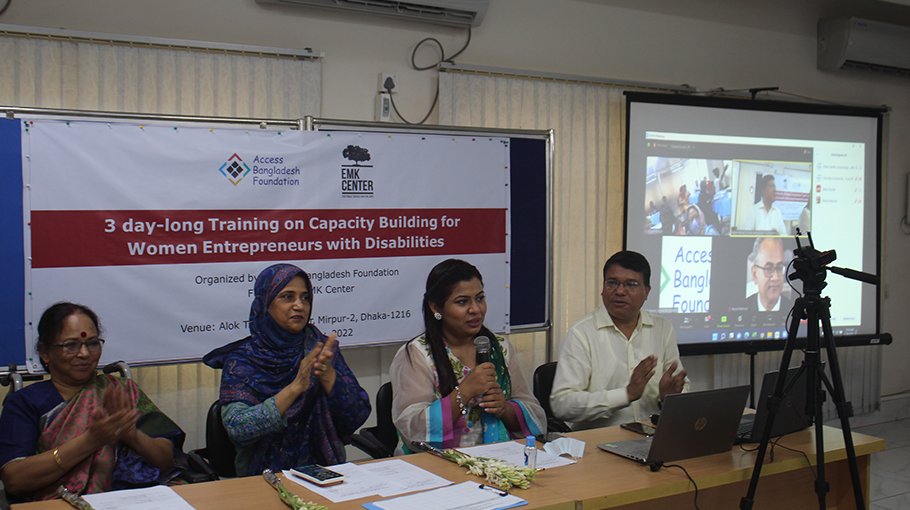Move to engage women entrepreneurs with disabilities in e-commerce
ABF, EMK Center of US Embassy imparts capacity-building training

Access Bangladesh Foundation with the support of EMK Center of the US Embassy arranged a 6-day residential training program for Women Entrepreneurs with Disabilities to engage them in the E-commerce platform.
Selected 50 women entrepreneurs with disabilities from 17 districts of 7 divisions, Bangladesh received training in two batches from July 25th to 30th.
Vice-Chancellor of the University of Liberal Arts Bangladesh (ULAB), Professor Imran Rahman, attended the first batch training inauguration as the chief guest.
He stated that this is the ideal time to use technology to improve the lives of socially disadvantaged persons.
Access Bangladesh has launched a timely and innovative project. In the future, we'll keep working together on this endeavor. In her remarks as a special guest, ShaeenAnam, Executive Director of the ManusherJonno Foundation (MJF), highlighted the need to discover the capabilities of women entrepreneurs with disabilities to change negative societal perceptions.
The 2nd batch training program's chief guest, Manik Mahmood, Head of Social Innovation and Operation Cluster, a2i, delivered that Bangladesh government is working relentlessly to promote entrepreneurs.
He added that Access Bangladesh Foundation should expand this project to includewomen entrepreneurs with disabilities to use the online marketplace.
In her statement as the special guest, NasimaAkterNisa, Founder and President of Women and e-commerce (WE), stated that WE will provide support to Women Entrepreneurs with Disabilities so that they can participate easily in the WE platform.
Iffat Zahan Pithia of a2i, Masiur Rahman, Senior Executive of CSR and Sustainable development of corporate affairs, Md. Ibrahim Kholil, Executive acquisition- commercial of Daraz and Dr. Salma Parvin, Director of the working committee of WE provided a detailed presentation on the ways of engaging with their e-commerce platform.
According to Albert Mollah, CO-Founder & Executive Director of Access Bangladesh Foundation, the major challenges faced by women entrepreneurs with disabilities include the difficulty to sell their products, being unable to maintain their rental business due to financial difficulties, and lacking the necessary marketing expertise, etc.



